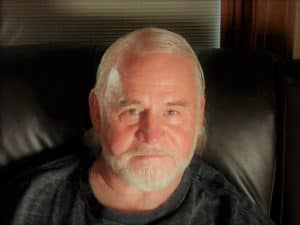I have been convinced Shaksper did not write Shakespeare since I came across Dorothy and Charlton Ogburn Jr.’s book Shake-speare, the Man Behind the Name over three decades ago. The first thing I noticed was, of course, the signatures. The next, Will’s will. No books, no manuscripts, nothing in it to offset those childish scrawls. How do you explain them? The obvious answer is, you can’t. The experts are unable to give a satisfactory answer, so they are silent. The more I researched, the more evident it became, at least to me, that the Stratford man could not have written what has been attributed to him. I really don’t understand what all the fuss is about. I suppose, human nature being what it is, it’s difficult to admit when you’re wrong, especially about something this significant, but I really do think it’s time to move on from the Stratford man and start a legitimate academic search for the true author.

I really didn’t have a dog in the fight back then (I do now) and so, as I read, I wasn’t encumbered by a lot of preconceptions. The more I learned, the more my first instinct was bolstered. By the time I discovered Charlton Ogburn’s The Mysterious William Shakespeare, I approached it as the ultimate reference book on the attribution of plays and poetry to the proper person. The one piece of evidence that removed the last lingering doubt in my mind was the dedication page of Shake-speares Sonnets and the fatal words in the dedication OUR.EVER.LIVING.POET. Why? Because the words EVER.LIVING compellingly indicate that the author of the sonnets was deceased and, as all of us on both sides of this question know, Shaksper was very much alive at the time. Those on the Stratford side have yet to come up with a different usage of those two words from that era that would explain this away, so they say nothing.
Over the years I’ve gotten to know the sonnets themselves. There’s not enough time in the universe to know them completely. Anyone that maintains that they were written purely as an academic exercise is cutting the cloth to fit their pattern. You can hear his voice throughout and it is a noble, pedigreed instrument, enriched by being educated by the finest scholars of the time. My favorite sonnet is the 91st, and I’ve memorized it. I can’t imagine anyone but a courtier writing a poem like this. He lists the accoutrements of high birth and how they pale in comparison to his love. The clincher is line 9, and I quote, “Thy love is better than high birth to me.” Every time I recite this sonnet to myself while walking the dog or performing some mundane task, his face becomes a little clearer to me, and quoting Elizabethan poet George Chapman, that face belongs to “the most goodly fashion’d man I ever saw . . . ’twas the Earl of Oxford.”
— John Gerhard Shuck
“How I Became an Oxfordian” is edited by Bob Meyers. You may submit your essay on this topic (500 words or less in an editable format such as MS Word), along with a digital photo of yourself, to: communications@shakespeareoxfordfellowship.org. Also include a sentence about yourself (e.g., “John J. Smith is a businessman in San Francisco.”)
SOF memberships for are now available on our membership page. Join or renew now!


